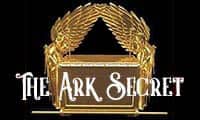It’s About the Rules
 If our first week back showed us anything, it’s that a republic based on democratic principles can be messy. While it may not always look pretty, in the end, we can usually come away with good results for the American people.
If our first week back showed us anything, it’s that a republic based on democratic principles can be messy. While it may not always look pretty, in the end, we can usually come away with good results for the American people.
In the very early hours of January 7th, the House of Representatives voted to elect the next Speaker of the House. In all, it took 15 rounds of voting to elect a Speaker.
When I first came to Congress, it became clear that Congress had veered dramatically away from Jefferson’s Manual of Parliamentary Practice and Procedure. But Congress and the Virginia House, where I previously served, have used Jefferson’s manual as the basis for their rules.
I’ve said for years Congress is broken and it’s time to make it more efficient and productive. In order to do so, we must start with the rules and have them align with the principles set forth by Jefferson. Accordingly, I made it a task of mine to work for changes in order to make this institution operate better.
For months I worked to negotiate an improved rules package. In fact, before the Freedom Caucus, of which I am a member, finalized their request to then-Republican Majority Leader Kevin McCarthy, I presented to the Rules Committee my proposed changes in November. I also released a column detailing my proposals on December 2nd of last year.
Although the language of some of my rules were altered in negotiations, the principles of many of these rules were included in the final package, being brought to the floor as I write this column.
My first change is a rule that legislation can only be considered if it has a single purpose. Having bills that only address one purpose will allow legislation to be more straight forward, leading to a smoother process to consider a bill. A single purpose rule has never existed before in the U.S. House of Representatives.
Another rule change agreed to is a stricter germaneness interpretation. The House should not amend a bill that is not in keeping with the intent of the bill as introduced. This change will lead to smaller bills and a more direct vote for the principles these bills stand for. This change will lead to a more orderly procedure and allow the House to expedite its business.
If used correctly, neither the House nor the Senate could change a commemorative coin bill into the gargantuan so-called Inflation Reduction Act. That’s exactly what happened last summer.
Practices such as that are just plain bad legislating. That is true no matter whether the intentions are fair or foul.
This package also restores the Holman Rule. This tool existed in Congress for more than 100 years and I have led efforts to revive it. I was successful in bringing it back in the 115th Congress. The rule can be used to curb out of control spending, allowing representatives to offer retrenchment amendments on the floor of the House of Representatives to appropriations bills. Retrenchment means these amendments could rearrange an agency or department of the Federal Government by cutting specific programs, positions, or salaries, as long as there is a reduction in federal spending.
These rules changes are aimed at giving individual members more power in the legislative process, instead of the standard top-down approach of leadership. For too long, leadership of both parties dictated the agenda and the language of bills. Now, it’s time to return some of that power to Members of Congress.
I knew my vote for Speaker would always be based on reforming the rules and I told Kevin McCarthy that was the case.
Kevin McCarthy’s team worked closely with me on hammering out the language of new rules and agreeing to adopt them. Because he agreed to my reforms, I agreed to vote for Kevin McCarthy for Speaker of the House.
After the Speaker vote, we expected to vote on the rules, but in true legislative fashion, that didn’t happen. For good reason too. One of the newly agreed-upon changes was that members actually get 72 hours to read bills.
The longer time to read a bill was a reform that I did not draft, but wholeheartedly support. Even though the rules package is not a bill, it was important for members to have time too fully examine the document.
If you have questions, concerns, or comments, feel free to contact my office. You can call my Abingdon office at 276-525-1405, my Christiansburg office at 540-381-5671, or my Washington office at 202-225-3861. To reach my office via email, please visit my website at www.morgangriffith.house.gov.









